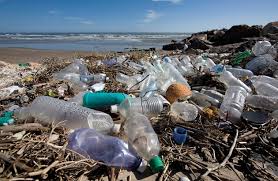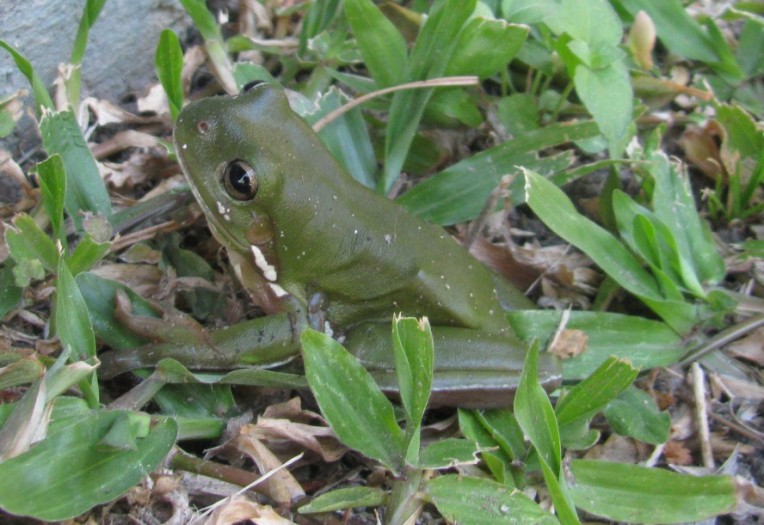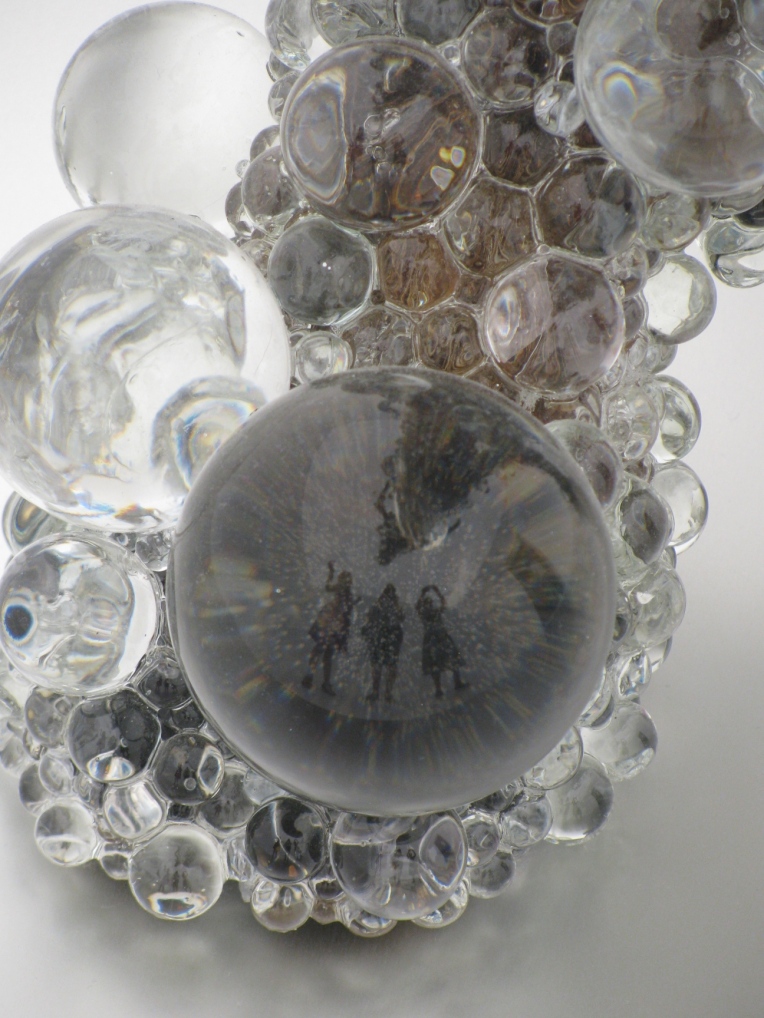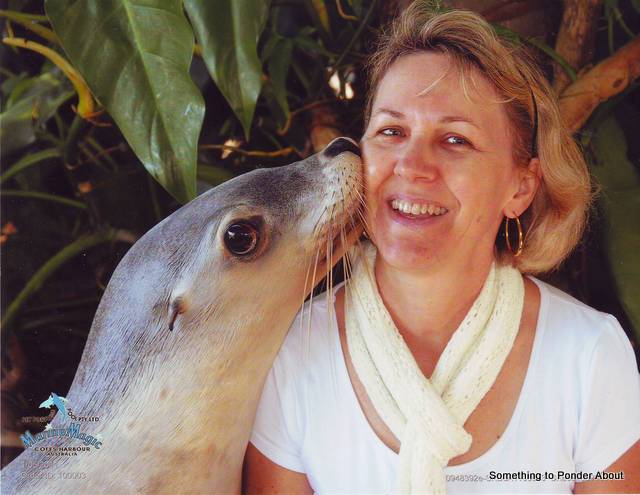
1984 – Australia.
A skinny slip of a girl was studying the Environment at University. She learnt about planet earth and how fragile it was; how global temperature might rise at least 2- 3 degrees, and how this warming might lead to cataclysmic and irreversible ramifications for life, on earth.

That student also learnt how inland river systems were polluted by effluent from cities and how excessive irrigation for agricultural crops led to saline soils and dying river systems, in this the driest continent, on earth. She learnt how her country would begin to experience more drought, wild weather events, fire and more hardship on the land in coming decades.

Furthermore, she read how scientists detected die-back and bleaching of coral in the Great Barrier Reef due to run-off of fertilizers draining down from agricultural land into the sea, during rains.
She learnt how everything in the natural world is interconnected.
If one part of the ecosystem breaks down, or disappears, it has a deleterious domino effect on other parts, with potential species extinction and irreversible damage to nature.

She learnt along with rising sea levels, that there is not a single species in the ocean without plastic materials in its gut; that fisheries are disappearing and that the only marine species flourishing in the alkaline marine environment is Jellyfish.

In University classes, she discussed how we as humans, along with other predatory species will feel the concentrated effects of endocrine disrupting petrochemicals and accumulated pesticides. And that we might see evidence of this first in plants, second in animals that feed on those plants, and lastly in us, the carnivores that eat the animals, because we are at the top of the food chain.
Everything is connected.


She learnt that frogs are a good indicator of the health of the environment and that frogs and bee numbers are dwindling.

The student then learnt about the hole in the ozone layer and how the polar ice sheets could melt resulting in a rise in sea levels; meaning some low lying countries will become uninhabitable.

For this student, who had grown up in the shadow of potential nuclear extermination in the Cold War era, soon realized an even bigger threat to the planet was, in fact, man himself.

What kind of world would her potential future children be gifted with?
She left her work in the environment field as she could not bear to hear it any more.

Now no longer a student, but a Mother, that women began to facilitate and promote environmentally friendly practices in her own circle. She spoke about her concerns with friends, family and her wider community, and slowly changed attitudes of those around her, and increased awareness, in her own microcosm.

That former student learnt that education and knowledge can be a powerful vanguard for change in community thinking and ultimately, in the halls of government. The student, who had read so much gloom and doom in her University years, also learnt that there is HOPE.

Photo by American Public Power Association on Unsplash
Slowly, as temperatures began to rise, folks began to know the world was indeed a finite place and could no longer absorb man’s destructive ways.
Sustainable practices, solar and wind power and recycling became mainstream. Single use plastic bags were banned or minimized. Threatened forests and animals were protected and land clearing practices examined in terms of their biodiversity loss or environmental value. Salinity in rivers and streams began to be addressed and is now understood as both a threat and a challenge.
And the public started to realize that Climate Change is real.

Friendly Friday Photo Challenge will have a new weekly prompt next week here on Something to Ponder About. Thanks ever so much to my co-host TheSnowMeltsSomewhere for her Friendly Friday Climate Change prompt.
Please check the comment section on her post for other entries to this challenge.

This topic is especially dear to my heart and in highlighting this issue through photography, we can also increase awareness. I will pop down from my soap box now.
Amanda
#OneWorld Let’s change it!


Amanda, what a wonderful and powerful piece of writing – I can’t remember the last time I read something so meaningful! Thank you! 💕 I loved the beautiful photos, too. Yes, there is hope 😊
LikeLiked by 1 person
Oh you are too kind, Snow. It was easy to write because the subject is close to home for me! And it is all true. All these things were known in the eighties, and oftentimes, Environmentalists were considered fringe nutters. Now we are listened to. Here’s hoping we can change the world!!
LikeLiked by 1 person
Great take on a very real issue..
LikeLiked by 2 people
Thank you, Lisa. The issue is increasingly so, a real issue for governments too? What is the feeling in your neck of the woods? Is there a groundswell of recycling/solar initiatives?
LikeLike
Enjoyed the pictures and your thoughts and seriously – after reading this I am going to get on my son for all the water bottles he has been going through lately – there was a time when we never used them (had our reususbke bottles) and he has been buying the cases lately
So you can tell
Which photo spoke to me the most- that one with the water bottles
–
But good post to raise awareness about earth and caring for her better
LikeLiked by 2 people
I appreciate your comment, Yvette. Those water bottles wash up on all the streams here after a big storm. It is disgusting. We never had them years ago and re-fill-able double insulated re-useable water bottles are very popular here now. I feel bereft if I haven’t got a water bottle with me, but I still refuse to buy the plastic ones. Reusable metal straws are the latest addition to the push to sustainability in the disposable food container arena. And you are to be commended on trying to change the attitudes of those around you. Well done, Yvette! Are there many sustainable practices in your community already?
LikeLiked by 1 person
Yes – we have had the high quality water bottles here for years and I was on an anti single use water bottle
Right after the mayor of San Francisco in 2002 saw the landfill and banned the bottles in the city (well now they have way worse issues involving dirty needles) but I think we are all very similar in our approaches to cut back. The metal straws are here too –
Oh and i assume that is you in the opening photo ? 1984? Cool shot
LikeLiked by 1 person
Yes. It is me. In another world at another time! Funny to look back on that now.
LikeLiked by 1 person
It is a wonderful photo and such natural
Beauty! Effortless with the heel off the flip flop and you just looking away –
LikeLiked by 1 person
‘He’ caught me in a pensive moment. It must have been summer. I think I had just come back from residential school at University with a new boyfriend. It was he who snapped the photo. I must have been just over 21 years old then.
LikeLiked by 1 person
and I am really glad to hear that the re-usable craze has caught one. Yay for that. Not Yay for dirty needles though. Are they addressing that too, somehow?
LikeLiked by 1 person
I am not sure – but recently saw another news story about the homeless drug users and some of the trash on the streets –
Hope they find a solution
Oh and hope you have a nice weekend
LikeLiked by 1 person
It is not easy to find an answer to their plight. It is almost Sunday here so I will wish you a Happy Sunday. Thanks for the weekend wishes.
LikeLiked by 1 person
😉
LikeLiked by 1 person
Very good take on this – hopefully a reminder. I will keep traveling though, but more by train. Recent years closer to home, maybe one big journey a year. At home we live as we preach – no plastic, less meat, no waste, no garbage, clothes mostly second hand, no new things. I feel bad about the traveling, but it is in my husband’s job too. I seldom accompany him nowadays… and guess it will ebb out in a couple of years as he is several years older than I am.
I am furious about the technology to save us already being there – but politicians do not have the guts to say yes to it. They are so afraid of the people, their voters, afraid to make uncomfortable decisions. Putting up solar screens in the deserts would give us immensely big opportunities for clean energy, and in Iceland they have invented a machine that swallows carbon dioxide – but it is very expensive. Whether we like it or not, this is going to cost – but the cost for us all will be our only home, Planet Earth, if we do not do something fast.
LikeLiked by 1 person
Well said, Ann- Christine. There is so much that can be done and adopting these expensive strategies might cost us in terms of taxes or the economy, but they might also find perhaps the prices come down for these items once they are more widespread? Our perhaps they could shuffle the money from taxes on other big polluting industries? The people and especially the young folk are in favor of this. Please don’t feel guilty when you travel with your husband as it sounds like you more than offset this with your environmental strategies at home. That machine in Iceland sounds fantastic as a short term help. I have not heard of it. Do you have any links? #OneWorld
LikeLike
https://www.icelandreview.com/news/revolutionary-equipment-turns-carbon-dioxide-stone-fighting-climate-change/
LikeLiked by 1 person
Great read and photos.Thank you for sharing!
LikeLiked by 1 person
You are welcome.
LikeLiked by 1 person
Yes, great post Amanda. I think there is so much positive change at the moment, but it is all too slow and too late. Big business continues to absorb resources at an alarming rate with no thought to the side effects, no care about the damage being done to the planet. Money Money Money! And then you get a US president like Trump who seems determined to push the world back into the dark ages… But change comes from the people, and I talk every day with people around the world who are taking steps to change what they can in their lives to help and that makes me happy. If enough people go to farmers markets and but local unpackaged goods for example, the supermarkets will have to do the same to continue making money. Its all in our hands so I agree with you, talk to those you know, get them to understand and make the changes they can too. Great post.
LikeLiked by 2 people
Thank you, Gavin for that uplifting comment. It is so good to hear that there are so many people doing what they can in their own small way all around the world . I firmly believe that change will come to government policy not least because the people will demand more sustainable practices, even though some companies will go to the wall. Business needs a major re-think. It cannot operate the eay it has til now. We are still dumping rubbish into landfill that could be recycled or shipping junk overseas. How wasteful and ridiculous is that? How do you handle waste in your municipality, Gavin?
LikeLiked by 1 person
We sort and recycle, but you can never trust the council to actually process it correctly. They are driven by money like everyone else. Too much still goes into landfill though. I think I put a quarter of what i used to into landfill now. That’s a big positive. Change is slow, but there is change.
LikeLiked by 1 person
Change is slow- that is right. That is why I try to do all we can in my own circle. Refusing plastic bags and providing reuseable bags and drink bottles as gifts to those who persist in buying them. Changing mindsets one at a time. Maybe we should become environmental activists in our retirement?
LikeLike
I read recently that Australia has allowed massive quantities of toxic mess to be dumped into the Great Barrier Reef. Is this true? What maniac thought that was a great idea?! Several years ago, here in the U.S., a President George W. Bush nominated a judge for a federal judgeship position. One of her most outrageous claims was that companies have the right to “profitably pollute.” I thought, ‘Seriously?! What idiotic school of law gave her that idea?!’
Climate change deniers point to harsh winter storms – such as those hitting the U.S. now – as proof that global warming is a hoax and merely an attempt by leftists to stifle business and industry. But scientists never said winter storms and snowfall would become obsolete. They’d stated from the very beginning that all kinds of storm systems would be more powerful when they do hit.
The global demand for meat is also impacting climate change. That coincides with population growth. Part of the solution would be women in developing countries having more economic and social power – at least equal to that of men. If women have more control over their reproductive health, they realize they can do more with themselves than just have children.
I feel another solution – and this may seem cruel to some – would be a global pandemic equivalent to the 1918 “Spanish flu”. The mother of my paternal grandmother succumbed to that in early 1919. I think they referred to it as “cholera” at the time. But it’s a wonder no one else in that family also got sick. If something like that could spread across the planet before the age of jet travel and vast stretches of highways, imagine how quickly a transmittable disease could spread now! But with so many people on Earth, using up so few natural resources, I don’t see how that can avoided. It may not hit in our lifetime, but something like the 14th century “Black Plague” or the “Spanish flu” is likely to ravage the planet again. And, since humanity can’t seem to control its own growth and behavior, that may be best for us overall.
LikeLike
I think even though the news reported that we allowed toxic spills, it is a little more complicated. There are some protections for the reef but there is also little prevention in the event of an accidental or deliberate spill. A fine or rap over the knuckles is all that happens to polluters. We had a conservative government approve a large scale coal mining project near the reef, that could threaten its stability, yet it was approved by conservative governments on the promise of jobs creation. That party and its ruthless leader were later voted out of government but too late to cancel the contracts. The ensuing government placed stricter controls on the project but this company is a third world company used to polluting without worry. Enter extreme weather into the mix and you have an environmental disaster that was bound to happen. The conpany has broken the rules twice but taking them to court for breaking the project rules, is a lengthy process, Alejandro and we need immediate action. So not deliberate destruction, but sadly predictable. But hey, we probably got 10 new jobs out of the coal mine and most hundreds more in the tourist industry from a ruined reef- NB the reef runs all the way one third of the way down the east coast of Queensland state so this is only part of the reef that was affected by the deleterious runoff. I don’t like that judge’s attitude at all. Profitably pollute is akin to profitably kill because that is what pollution does to animals and plants. You are correct about climate change. All kinds of weather patterns but much worse than the average.
The education of women in the third world is very important to our future and can make a positive impact on increased life expectancy, lower infant mortality, living standards, curbing population growth and equality. I am so pleased you understand this. A lot don’t.
I also think an epidemic is possible but not desirable. Bacteria mutate faster than we can invent treatments. Humans are nit so good at controlling themselves but I hope for a gentler solution. Thank you for contunuing the discussion #OneWorld Let’s change it
LikeLike
Great post, Amanda. We are doing what we can but it’s not enough by any stretch of the imagination. Those in power allow the use and abuse of our natural resources. So many people look at me like I’m nuts when I pull out my own reusable straw in a restaurant or my own carry out container. I supply my own shopping bags and try to never buy food packaged in foam packs but it’s almost impossible, especially with my income. Since the orange man is in charge, we are going backwards and I’m angry. I can only pray now.
LikeLiked by 1 person
If everyone did as much as you do, Marlene, we would be in a better position. I am so glad you are being a great role model to others. It is not hard to do these things. It is a mindset. The so called orange man has the wrong priorities and lives in a different era with the wrong selfish intentions.
LikeLiked by 1 person
If only the awareness didn’t filter through faster — or get hammered there with blunt instruments!
LikeLiked by 1 person
If softly softly doesn’t work, I think the planet will hammer it home for us, Colonialist.
LikeLike
Beautiful post, Amanda! The reality of climate change is frightening, especially for the coming generations. As long as individuals care and make changes there’s hope. One human at a time!
LikeLiked by 1 person
Thank you so much, Sabine. I can see you have similar feelings as I do. We can change our little world and start a chain reaction of caring and environmentally friendly ways. As demand grows, this starts to put pressure on big polluters as we shy away from their products. #OneWorld Let’s change it
LikeLiked by 1 person
Yes we can!
LikeLiked by 1 person